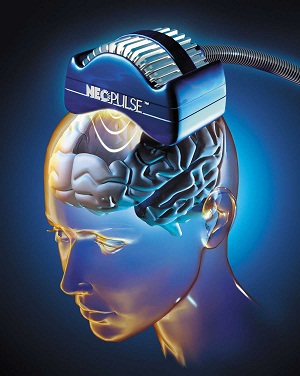New Therapy Offers Hope for Depression

For many people suffering depression, there is new hope with the latest treatment for depression – rTMS. That stands for Repetitive Transcranial Magnetic Stimulation, a new non-invasive device that has been FDA approved in the treatment of depression that has not responded well to drug therapy.
The device sends focused, magnetic pulses into the part of the brain that has been linked to depression. The MRI-strength pulses can activate this part of the brain and leads to improved symptoms within six weeks. In the clinical trials of the new device, over half of the patients studied experienced significant improvement while a full third of participants had all symptoms disappear completely.
Assistant professor with the UAB Department of Psychiatry and Behavioral Neurobiology Bates Redwine M.D. explains how the device works.
“rTMS uses a series of strong, focused magnetic pulses to stimulate a part of the brain called the left dorsolateral prefrontal cortex. This part of the brain is known to have decreased activity in depressed patients. The magnetic pulses pass through the scalp and skull to the brain, where they cause these brain cells to activate. Repeated stimulation over a series of weeks causes sustained activation of this specific area of the brain that results in significant improvements in depressive symptoms.”
The procedure takes about 40 minutes per session, which involves them sitting in a chair that the device is attached to with a flexible arm. The arm is positioned in the correct spot and the patient can nap or watch television. Other than hearing clicking sounds from the device as the pulses are sent, the patient wouldn’t even know the device was working as they won’t feel anything during the procedure.
Redwine said, “We know that more than 30 percent of patients with depression do not benefit from and/or are intolerant of antidepressant medications. It’s gratifying to have a new tool that we can offer to patients that has demonstrated an impressive success rate.”
If the improvements turn out to be permanent or at least long-lasting, this new tool could prove to be a godsend to those suffering from depression.